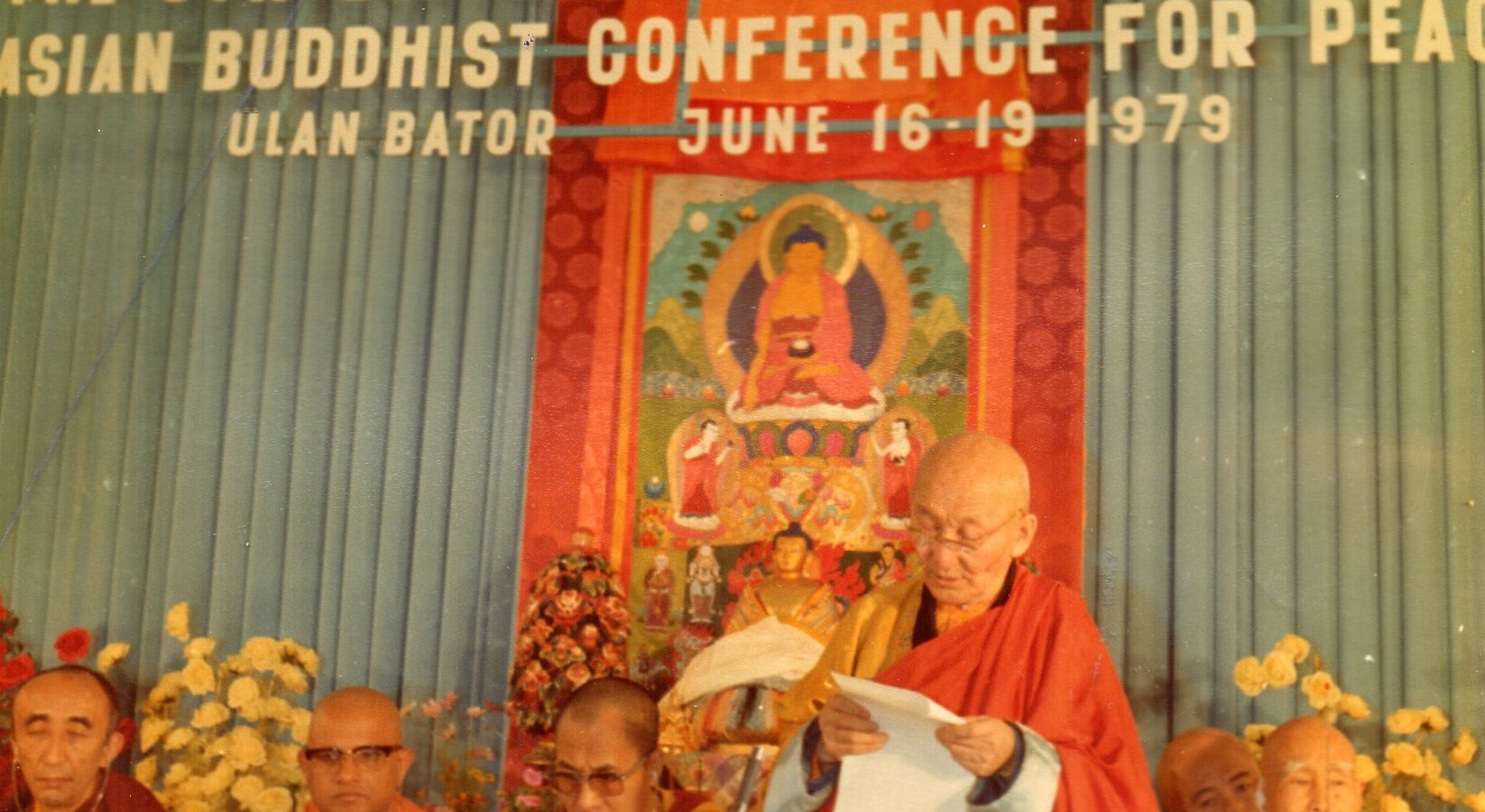FIFTH ABCP GENERAL CONFERENCE
The Fifth ABCP General Conference was held under the motto “Buddhists for Peace, Unity and Justice” in Ulan Bator on 16-19 June 1979. It was attended by over 240 delegates, observers and guests, representing Buddhists from Bangladesh, Bhutan, India, Japan, Kampuchea, Laos, Mongolia, Great Britain, Nepal, Sri Lanka, Thailand, the USA, the USSR and Vietnam. It was also attended by delegates from international organizations such as the United Nations, World Peace Council, Christian Peace Conference, Berlin Conference of European Catholics, Committee for the continuation of the work of the Conference of Religious Workers for Lasting Peace, Disarmament, and Just Relations among Nations and the Afro-Asian Peoples Solidarity Organization.
His Holiness the Dalai Lama and Most Venerable Nichidatsu Fujii participated in the inaugural ceremony and addressed the Conference.
The conference received messages of greetings from the President of the Mongolian People’s Republic and heads of state and government of several other countries. The messages expressed high appraisal of the ABCP activities and wished it further success in the noble cause of upholding peace and justice.
Messages of greetings were also received from Mr. Romesh Chandra, President of the World Peace Council, His Holiness Patriarch Pimen of Moscow and All Russia, Venerable Dr. Nakorm Khemapali of Thailand, Mr. Abdel El Sharkawi, Secretary-General of the Afro-Asian Peoples Solidarity Organization, and from other religious and non-religious organizations and personalities. The head of Tibetan Buddhists, His Holiness the Dalai Lama Tenzin Gyatso, and a peace champion from Japan, 95-year-old Most Venerable N. Fuji attended the conference as guests of honor.
President of ABCP, the Most Venerable Khambo Lama S. Gombojav delivered on extensive report on the ABCP activities. He stressed that in the ten years since its inception, the ABCP had developed into a prestigious international organization.
A report on the ABCP activities in the period since the Fourth General Conference was delivered by the Secretary-General of the ABCP Dr. Prof. Ch. Jugder. There were also reports on the activities of National Centers. These reports demonstrated the fruitful and constructive work done by the National Centers to rally the Buddhists in the peace movement.
-o0o-
Sessions of two commission of the ABCP 5th General Conference were held.
At the session of Commission I, dealing with the topic “Problems of Peace in Asia,” the delegates heard and discussed the following reports: “International Situation in Asia and Tasks before the Asian Buddhist Movement for Peace” (the main reporter Venerable A. Indirathana on behalf of Venerable M. Wipulasara of Sri Lanka), “The Situation in South East Asia” (sub-reporter Venerable Thich Tri Thu of Vietnam) and “Disarmament and Tasks before the Asian Buddhist Movement for Peace” (reporter Venerable G. Sato of Japan).
At the session of Commission II, dealing with the topic “Problems of Unity and Co-operation”, the following reports were delivered and discussed: “Cooperation of Asian Buddhists in the Struggle for Peace” (the main reporter His Holiness Kushok G. Bakula of India), “Strengthening of International Solidarity in the Establishment of Peace in South East Asia” (main reporter Venerable Thich Minh Nguet of Vietnam).
The 5th General Conference of ABCP adopted the following final documents: “Ulan Bator Appeal to All Buddhists in Asia and the World,” “General Resolution of the 5th General Conference of the Asian Buddhist Conference for Peace,” “Special Resolution on Vietnam, Laos and Kampuchea,” and “Appeal to the Heads of Governments of Asian Countries,” and also messages to His Excellency Yu. Tsedenbal, President of the Presidium of the Great People’s Khural of the Mongolian People’s Republic.
These documents highlighted the priority tasks and the sacred duty of the movement to increase the contribution of the Buddhists to the cause of peace and justice, to disarmament and to social and economic progress. They underlined the extreme importance of stepping up the struggle for banning nuclear and other weapons of mass destruction, for complete and general disarmament.
The conference discussed and endorsed the Constitution of ABCP and elected the Executive Council and the Office-bearers of ABCP: Most Venerable Khambo Lama S. Gambojav (Mongolia) was elected as the ABCP President, Most Venerable Sh. Mibu (Japan), Most Venerable G. Bakula (India) and Most Venerable Pham The Long (Vietnam) were elected Vice Presidents of ABCP and, Dr. Prof. Ch. Jiigder (Mongolia) as ABCP Secretary General.
The 5th General Conference of ABCP, which marked a great event in the history of our Movement, was held, in general, in an atmosphere of mutual understanding and mutual respect for the friends in the Dharma, in the spirit of sincerity, unity and business-like cooperation in conformity with the sacred teachings of the Buddha. The participants of the Conference expressed their conviction that the 5th General Conference of ABCP would give a new impetus in the furthering of active and fruitful expansion of the movement of Asian Buddhists for peace.
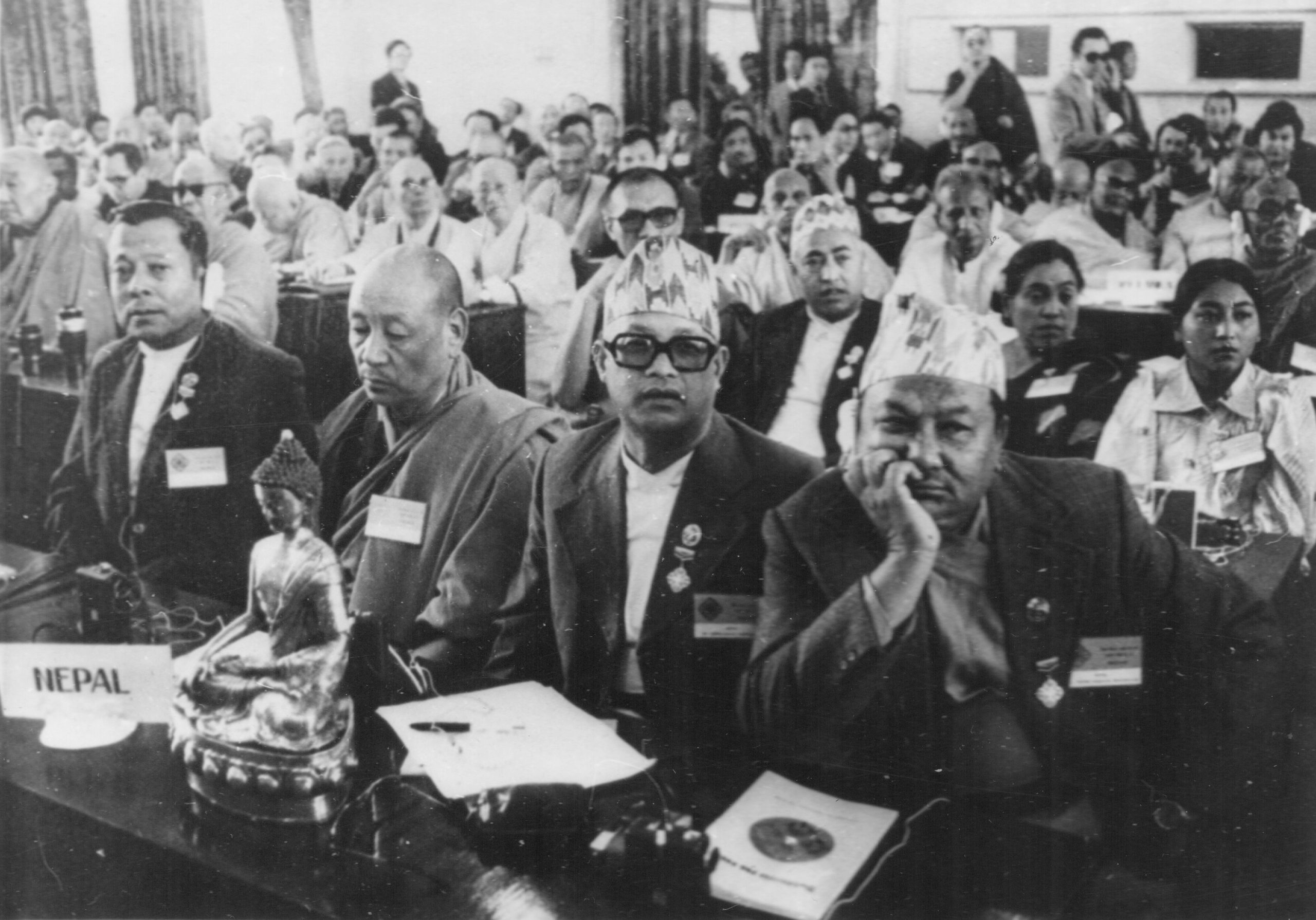
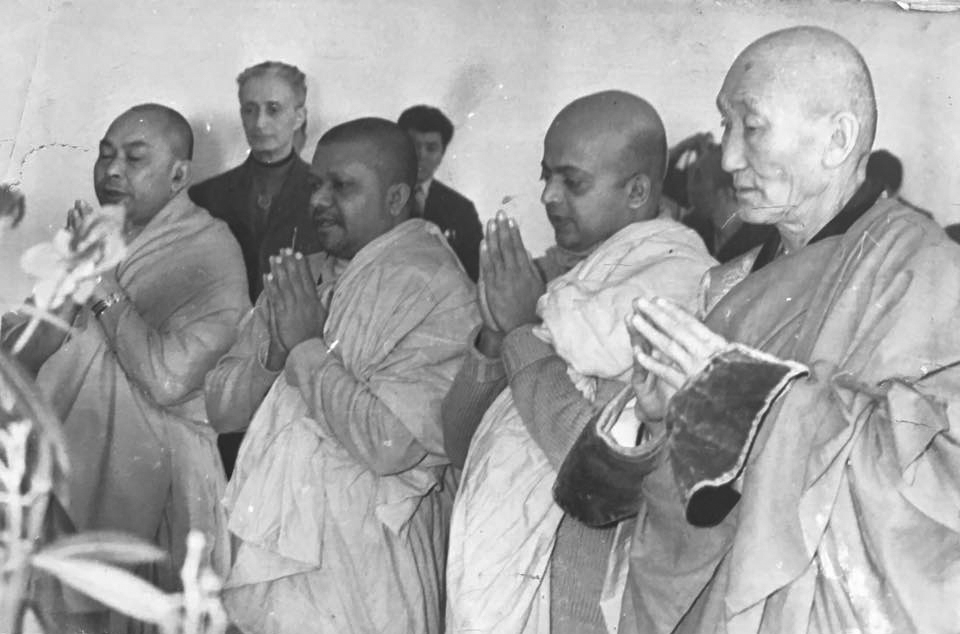
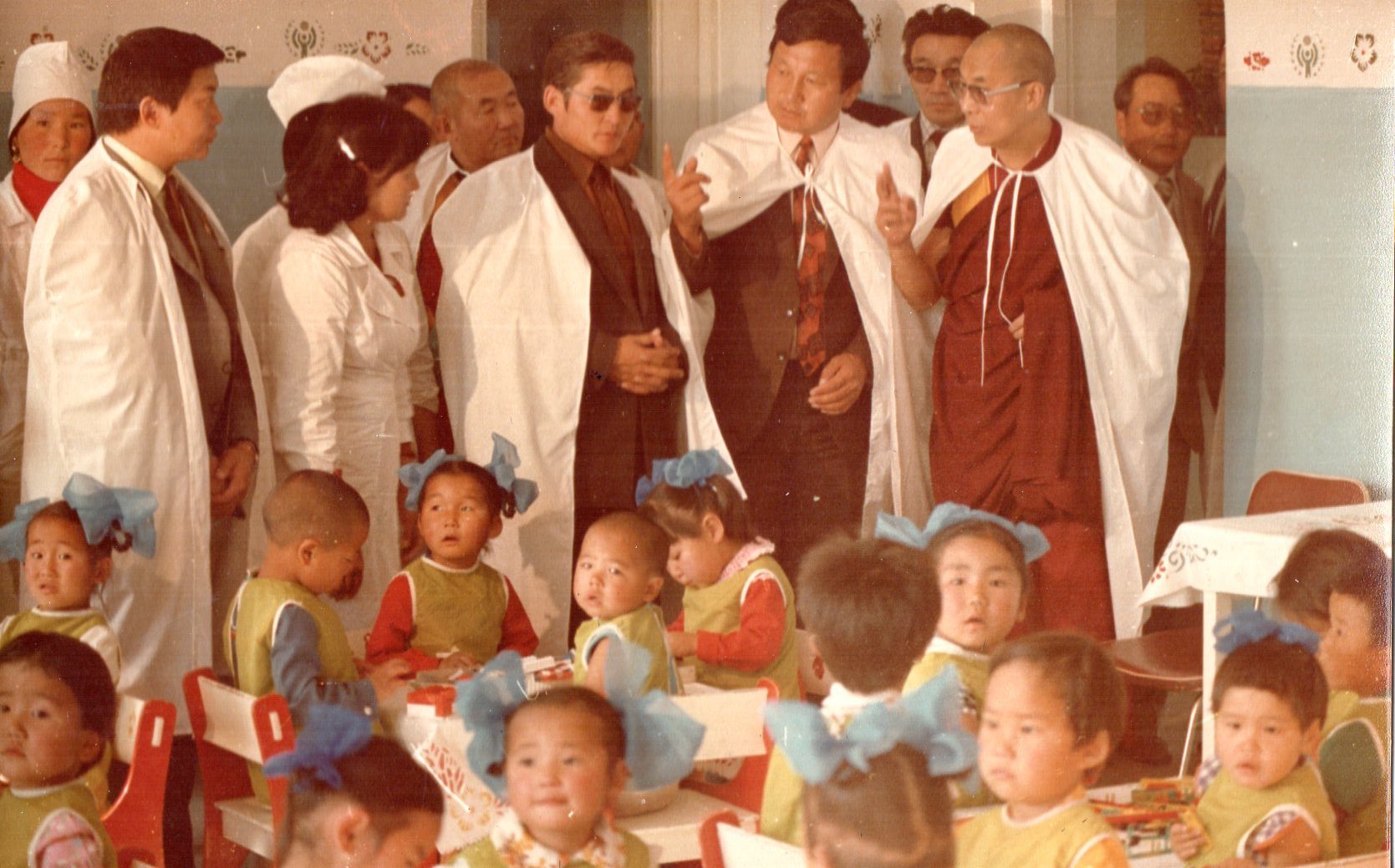
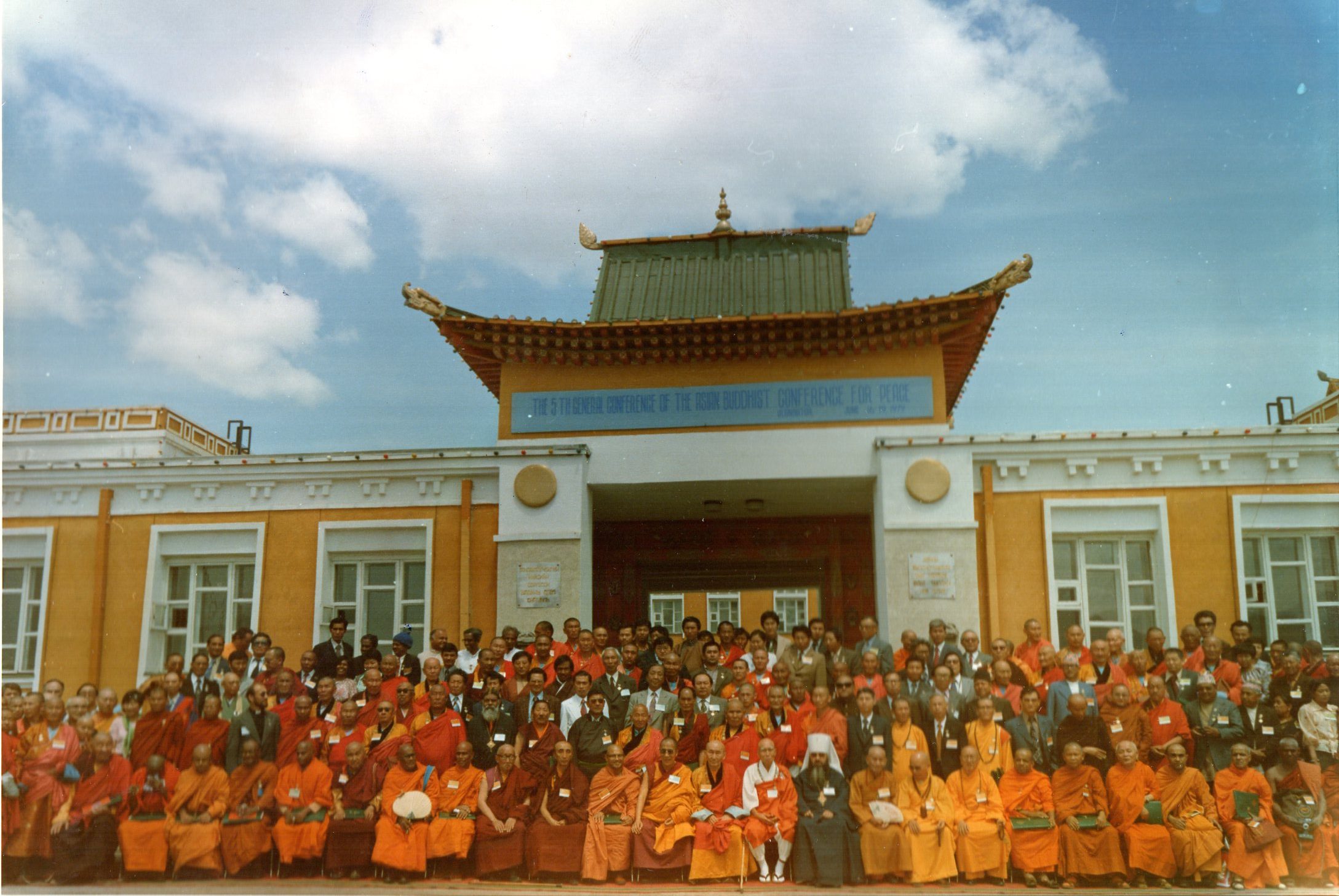
ULAN BATOR APPEAL TO ALL BUDDHISTS IN ASIA AND THE WORLD
Brothers in the Dharma, We, the disciples of the Buddha, imbued with a sincere desire and determined with unshakable will to establish universal peace and justice in Asia and the whole of the world, held the 5th General Conference of ABCP from 16 to 19 June 1979, (the year 2523 of Buddhist Era) in Ulan Bator, the capital city of the Mongolian People’s Republic. Gathered under the motto “Peace, Justice and Unity”, the Conference reviewed ABCP’s 10 years’ activities, outlined pressing tasks concerning the problems of peace in Asia and the world, and mapped out its tree years Program of Action.
- Guided by the Buddha’s Teachings, which encourage all men and women to lead their life to righteous paths, warding off all evils in pursuance with what is good; to stamp out ignorance, craving and anger by resorting to dear conscience and reasons; and to bring boundless joy and happiness to all sentient beings, by alleviating them from their sufferings through the practice of METTA-KARUNA;
And proceeding from the sincere usher embraced by us all, to establish lasting peace in Asia and the world under ever-pervading justice enunciated by the Tathagata;
We, the Asian Buddhists, have united ourselves into a movement which pursues the path shown by Him, quite independently and voluntarily, rising above all the barriers such as socio-political systems, nationality, language, color and race that had so far separated us from each other.
- Combining such relevant teachings of the Buddha with the active life of the modern society, the ABCP has further strengthened its organizational structure and has become an international organization worthy to be called as the Asian Maha Sangha, united for the cause of peace, Buddhists in the majority of Asian countries, and demonstrating its capability of shouldering the task of establishing durable peace not only for the Asians, but for the entire world as well.
- The ABCP has enhanced its international prestige, enlarged the scope of its manifold cooperation with other religious and secular peace movements. It has become an effective movement striving for world peace.
- The ABCP during the last ten years has responded to the rapid change of situations and ever increasing complexity of problems of peace in Asia and the world. It further intensified its activities to contribute more and more to the cause of peace, security and justice, channeling Buddhist thoughts and actions in the correct direction and formulating right approaches to the issues involved.
We know that there are similar peace movements in the world, as well as in Asia. They are engaged in immediate tasks, such as to reverse and end the arms race, striving to realize General and Complete Disarmament, and in particular nuclear disarmament; to improve just relations among nations; to support the just struggles of peoples for national liberation, independence, sovereignty, territorial integrity, social progress and democracy, against imperialism, colonialism and neo-colonialism, and on the whole, ensure survival of humanity and to make people prosper on this beautiful planet, the Earth.
It is good that we are now in the joint struggle with all the forces for peace and justice both at governmental and non-governmental levels, and that this combined force has now become a formidable might in the face of threat to the existence of mankind.
We call upon all Asian Buddhists and Buddhists all over the world to join in our common endeavor.
II (Disarmament, Security and Development)
- The heroic people of Vietnam and the patriots of Laos and Kampuchea have now succeeded in their struggle for national liberation and for their independence, gaining unprecedented victory after many years of just struggle against the world’s mightiest power, the US imperialism.
Positive changes have taken place since then. The prestige of the Asian nations has enhanced and the role of the non-aligned developing countries tremendously increased in the international community. It is necessary that they are allowed to build their nations without any external interference. It is thus imperative to strengthen and accelerate positive momentum in favor of people’s struggle for peace, independence and prosperity and for just relations among nations, by uniting themselves as one man. We have acquired in this a right perspective and a sense of confidence among ourselves. If we are united, we shall be able to bring success closer to us.
- The world today spends about one billion dollars every day for military purposes, meanwhile two-thirds of the world population is starving, bulk of them being Asians.
Under the colonial rule, Asian economy received the maximum setback with the result that our continent remained backward. We can reverse this situation if heavy expenditure for military purposes is allowed to be diverted into proper channels for eliminating backwardness of the people and raising the standard of their life. The necessary minimum for the needy in this continent can only and easily be met with a few days of military spending of the great powers.
- Last year, in May-June, the United Nations held a Special Session of General Assembly devoted to Disarmament. We, members of ABCP together with other NGOs active in this field of disarmament, contributed our share as participants in the capacity of Non-Governmental Organization for the realization of genuine disarmament. We welcomed the outcome of the Special Session on Disarmament because its Final Document had largely reflected our plea aiming at putting an end to the arms race and for elimination of nuclear and other weapons of mass destruction. This international community, at its highest level of assembly, fully analyzed the situation that while on the one hand, due to the persistent arms race and the existence of nuclear weapons, human survival has been threatened; and on the other hand, the rising global public opinion made it clear to the world that the time has come when humanity must seek and achieve genuine disarmament, thereby its security must not be sought in the accumulation of armaments through military alliances, or in strategic superiority or in the precarious balance of deterrence. It is also reiterated that the time has come when we can ensure international security by abandoning the use of force in settling inter-state disputes, accompanied by realization of disarmament. We believe that this is the unanimous view and the earnest wish of all the Asian Buddhists.
- The world public has now become quite aware of a close link between disarmament, security and development, after having experienced the horrors of war.
We should strive for a rapidly paced reduction of all rival arsenals throughout the world, we must help consolidate the just relations among nations, thus relaxing international tension to a stage where even Cold War becomes impossible. We should strive for the establishment of a New International Economic Order, where neither exploitation nor domination over the weaker section could be possible, warding off evil hands of Multinational Corporations, which are interfering in the internal affairs of developing independent countries, and, instead bring up, with loving kindness, a mutually beneficial international cooperation. We, therefore, reiterate that this can be achieved only when our approach to peace and security is based upon our long cherished Panchsheel.
- We demand, first of all, the demilitarization of Asia-Pacific and Indian Ocean regions, and in particular, a ban on deployment of all nuclear weapons there in order to prevent the outbreak of a nuclear war in the domain in which we live together; and we also demand the withdrawal of all aggressive foreign troops from other regions, and the quick-paced reduction of nuclear weapons from all arsenals in the Asian continent leading to complete global nuclear disarmament.
- We firmly demand the abrogation of all aggressive military alliances and the abolition of all aggressive military bases on our soil, which have multiplied the threat to the survival of humanity.
- For all this, the United States is to be blamed. First, as its administration has been spearheading nuclear arms race, provoking a nuclear war by adopting the strategy of nuclear first and pre-emptive strike in all war theaters throughout the world involving her allies such as Japan and NATO and bringing the Chinese bellicose leaders to deliberately delay negotiations on disarmament.
The global system of nuclear war is being renovated by the USA and her allies to meet arbitrary needs of winning a nuclear war, thereby endangering the survival of mankind. The SALT II agreement has been signed in Vienna. But the ratification on the part of the USA is being threatened by the hawks, who are out to disrupt every effort aimed at elevating measures of arms control as a genuinely effective multi-lateral over all negotiations for nuclear disarmament to ZERO nuclear weapons. If this process is sabotaged the Asians, who have been forced to live under the forward-based nuclear strike force, will continue to suffer.
- We demand that the People’s Republic of China realizes that the militarization of China in the name of “Modernization” has added a grave threat to peace and security in Asia, particularly to all the countries in the neighborhood of China. The establishment of nuclear bases at Kashgar in the North of the Himalayas, in the Yutang valley between Nepal and Bhutan, and at Datsang near Arunachal, at the cost of its own shattered economy have dismayed the people of Asia. China must abandon its persistent policy of “inevitability of war” and must withdraw from territories of her neighboring countries and stop laying false and fabricated demands on the territories of others. We demand China to stop the policy of sabotage and aggression against the Socialist Republic of Vietnam, the Lao People’s Democratic Republic and the People’s Republic of Kampuchea and to respect their national independence, sovereignty and territorial integrity. China must also respect world public opinion and reserve its nuclear policy and join disarmament talks in the larger interest of its peoples and the peoples of Asia.
- We call upon all Buddhists both in the Order and laity, the Buddhist monasteries and organizations in the Asian continent to take active part in the common struggle for a complete prohibition of nuclear weapons, first of all, on their use, declaring it to be an unpardonable crime against humanity and a violation of international law; and concurrently, for general and complete disarmament, by reversing the existing trends and putting an end to the entire system of arms race.
- In connection with the development of Asian communities, much has to be done in order to fully restore justice to the people thereof, necessitating our more and more active participation in the social life around us.
The dignity of man has been constantly violated. Unprecedented crimes of most savage nature have been committed against the Buddhists in Asia, beginning from the genocide in Tibet where about half a million Buddhists were massacred, and, culminating massacre of 3 million people of Kampuchea, of which 98 percent were Buddhists, by the Pol Pot-Ieng Sary clique during three and half years of its rule in that country. The loss of Buddhist people, monks and monasteries have been enormous to be enumerated. Ruthless repression has been committed to destroy the Triple Gem to deprive the peoples the right to profess their belief and to deny them even the elementary right to lead a peaceful life.
Guided by the noble teachings of the Buddha, we must contribute to the common struggle for equality of all peoples and all communities. The Sangha for the promulgation of Dharma has also been established for the protection of human life, for enhancement of human dignity and for the equality of men and women in the true meaning of the word. Once a man or woman enters the Sangha under the Triple Gem, no communal or racial discrimination can be permitted. In fact, in strongly criticizing the Brahmanical caste system, the Buddha himself had demonstrated that every human being could attain Nirvana by breaking all the bondages of Karma with the help of unsurpassed wisdom, which, He said, could be shared by all.
The Conference calls upon all the Buddhists, in the name of the Tathagata, to cherish His teachings, to be guided by them and to persistently strive for their implementation.
- Buddhism stands for modesty in the behavior of all beings in association with the material world, that is, the environment. It ensures and uninterrupted recurrence of combination of elements both in mind and matter, through the law of causation.
The wise counseling in this connection of the Buddha to us is to harmonize our life with nature. We, the Buddhists, must always be kind to all sentient and non-sentient beings alike, who surround us. An affluent life, that brings forth the contamination of the mind and matter at its associating points, should be avoided. The wastefulness of the resources appears to be arbitrary and arrogant sway of craving in the mind of a man, bringing a downfall of mankind as demonstrated in the energy crisis and nuclear pollution in the world.
If the humanity has to see the 21st century surviving, which it must, the protection of mankind and the protection of its environment should be placed at the same level of importance.
- In the face of serious threat to the survival of man-kind, and in order to carry out our responsibility as Asian Buddhists, we must combine our efforts to ensure cooperation of all the Buddhists, of all the religious man of goodwill, and over and above, seek world-wide cooperation of all forces struggling for the prevention of war, and for putting an end to the arms race, giving highest priority to nuclear disarmament.
- To prevent the outbreak of a war, we must strive for the unity of all peoples in the Asian-Pacific and Indian Ocean regions.
We witnessed how with the covert support and agreement obtained in advance from Washington and Tokyo, Chinese ruling circle invaded the Socialist Republic of Vietnam and committed barbaric crimes against innocent men, women and children. They unleashed an unprovoked war on the peace-loving Vietnamese people who were engaged in the task of national reconstruction after 30 years of war forced on them by the imperialists. We do not want the recurrence of such an aggressive war and hope that disputes, if any, will be settled by peaceful negotiations in the spirit of Panchsheel. If the Chinese rulers, in total disregard to the world public opinion, dare attack Vietnam again, we shall call upon all the Buddhists to rise in unison against the aggressor and name them as the enemy of Triple Gem. In the meantime, we demand that the Chinese aggressors must withdraw from Vietnamese territories and they must act in good faith in the negotiations.
- The People’s Republic of China, having 800 million population, the world’s largest, must not resort to a threat of use of force against any smaller nation neighboring her. China must refrain from threatening her neighbors with hegemonism and expansionism as has been amply reflected in her latest behavior towards Vietnam, whose territories were invaded and also in the instigation to the Pol Pot-Ieng Sary clique to commit unprecedented massacre and crimes and destruction of the Triple Gem. The Asian Buddhists shall never tolerate such a perfidious behavior of a ruthless regime. We call upon the Chinese Buddhists, especially those living overseas to join us in condemning these inhuman crimes.
- The unity must begin at home, therefore, we call upon the Asian Buddhists to come together around this Asian Maha Sangha in leading the majority of the population of this vast continent, towards a right path bestowed on us by the Buddha.
- Inter-religious cooperation has to be sought on all global issues touching the survival of mankind, such as dis-armament, leading to the convocation of S.S.D.-II-1982. We have also to ensure cooperation of all regional peace forces on common issues such as for a campaign for demilitarization of the Asian-Pacific and Indian Ocean regions and denuclearization of the littoral states.
- The 5th General Conference of ABCP finally calls upon all the Buddhists in Asia and the world to mobilize themselves with a clear conscience and reason to actively associate themselves with the tasks facing our mankind and put into practice the noble teachings of the Buddha. All our efforts should stem out of the benevolence of the Tathagata who assured to every one Nirvana for absolute tranquility of matter and mind for all times to come.
May the Buddha bless our work in the name of peace, justice and unity!
May the sacred cause of peace lead us towards the fulfilment of the wishes of the Tathagata!
May there be prosperity in Peace for all sentient beings!
The 5th General Conference of ABCP
Ulan Bator, Mongolia
19 June 1979.

